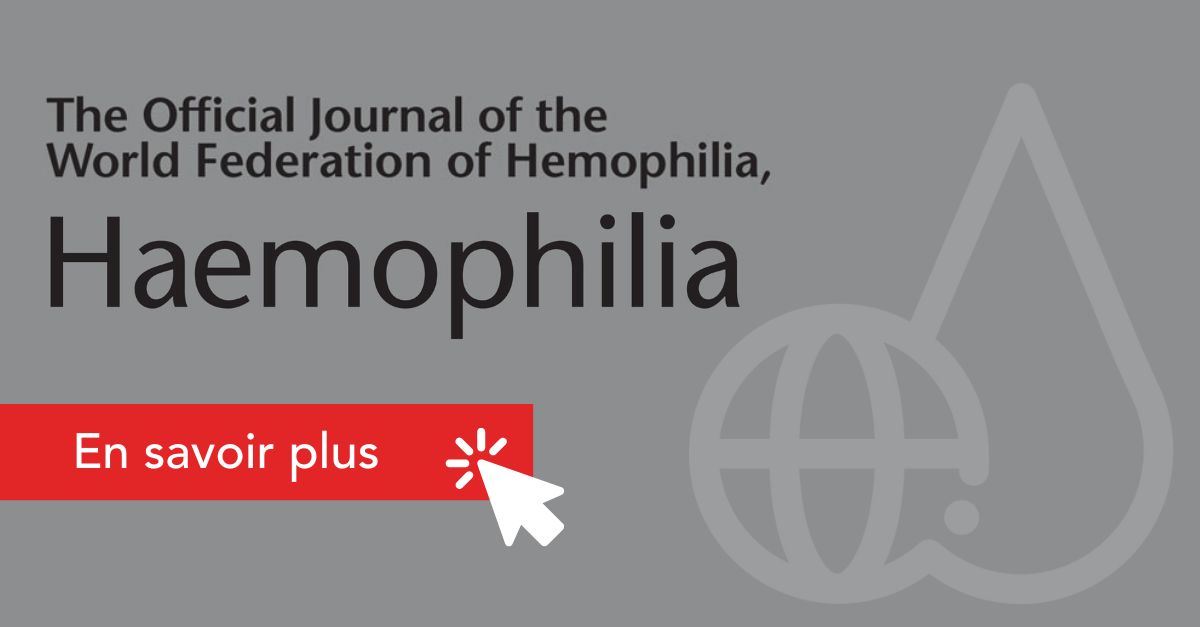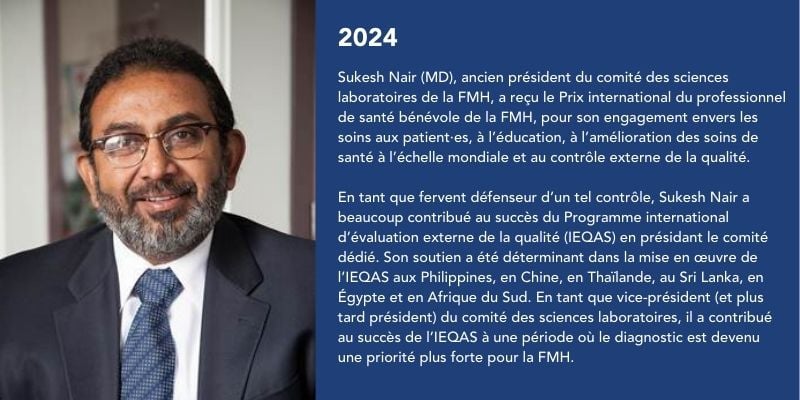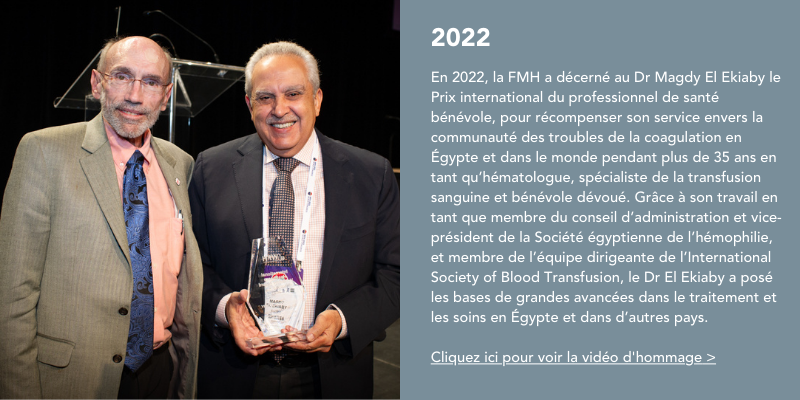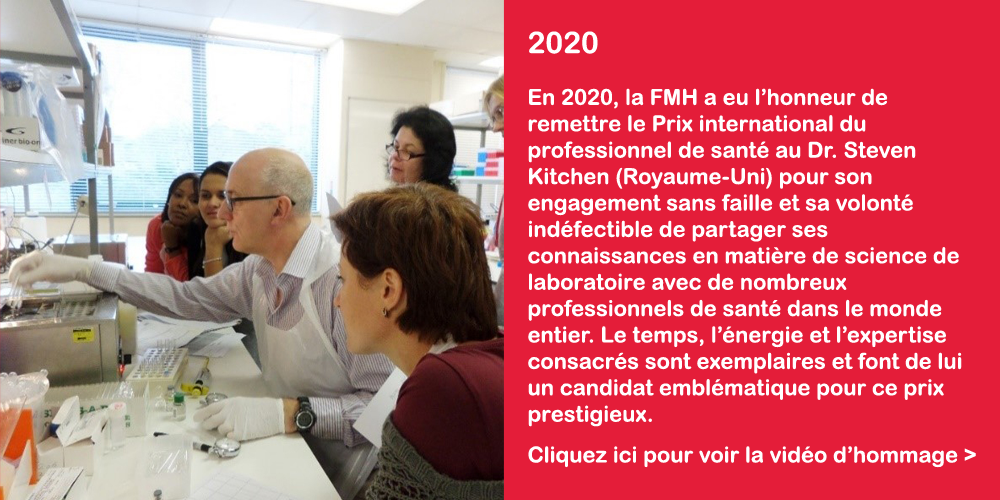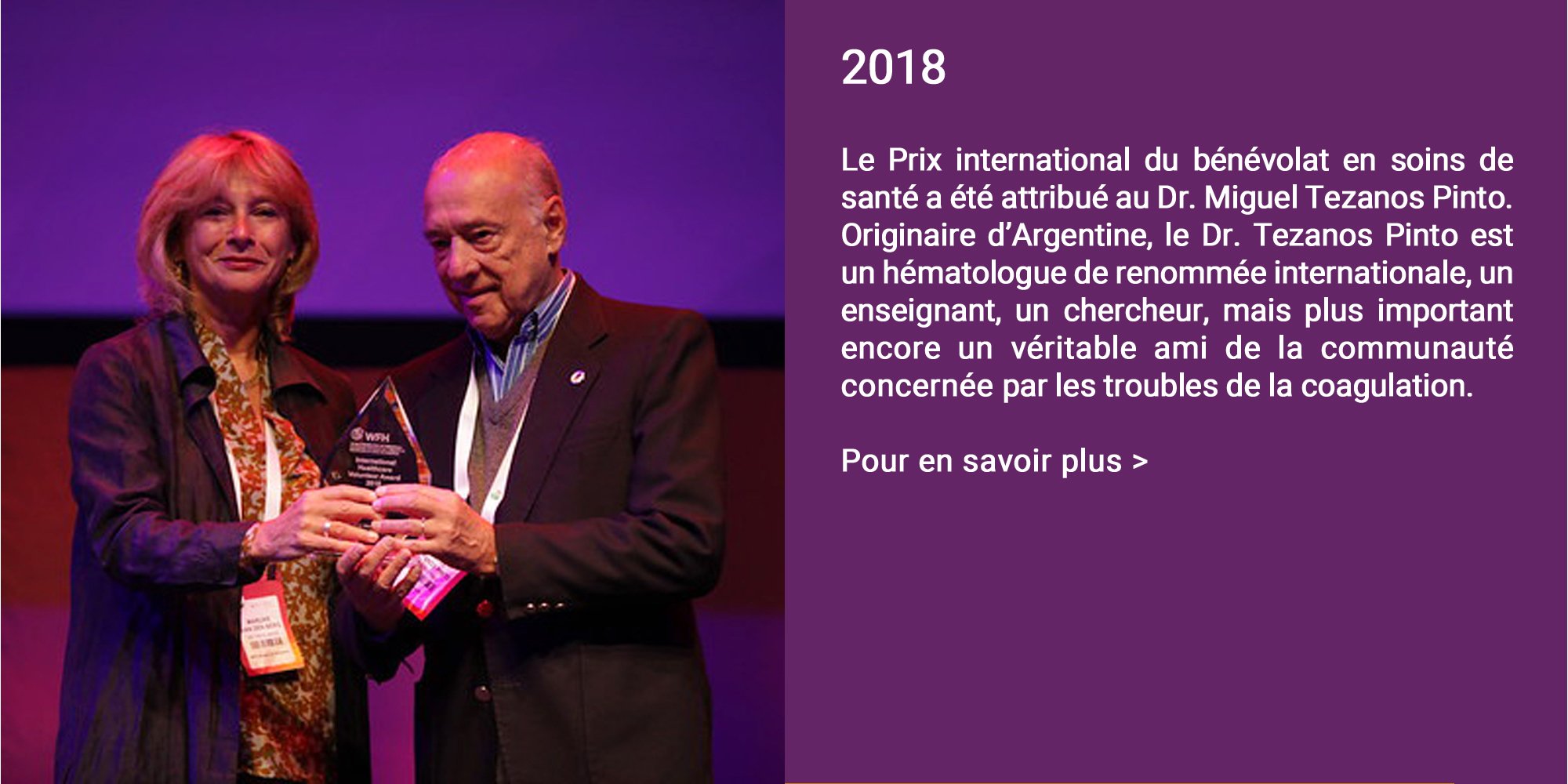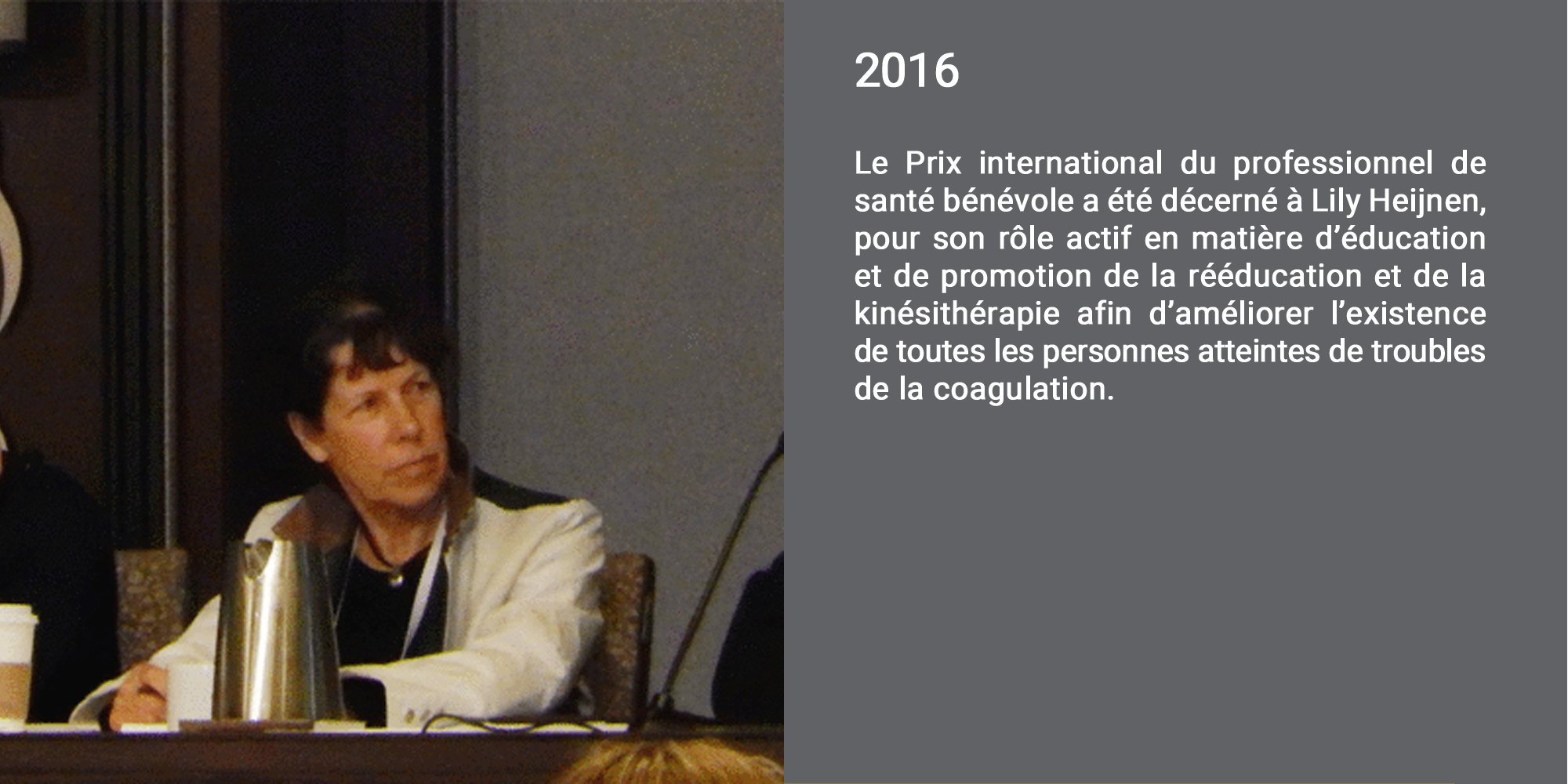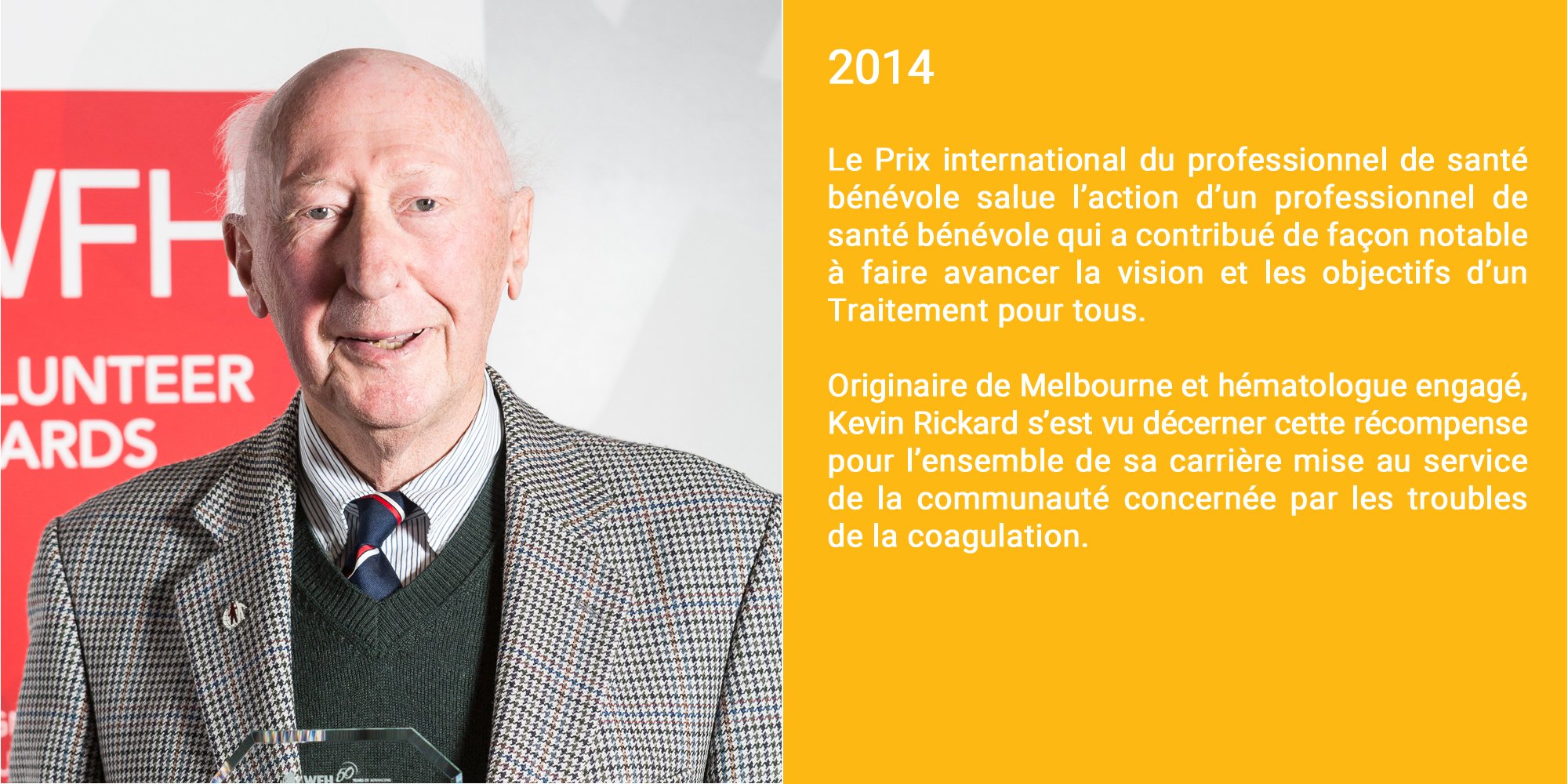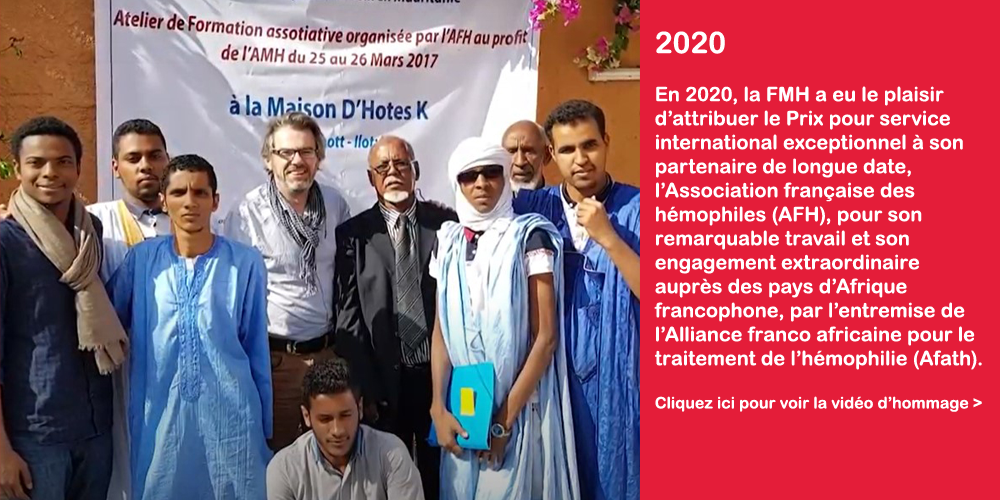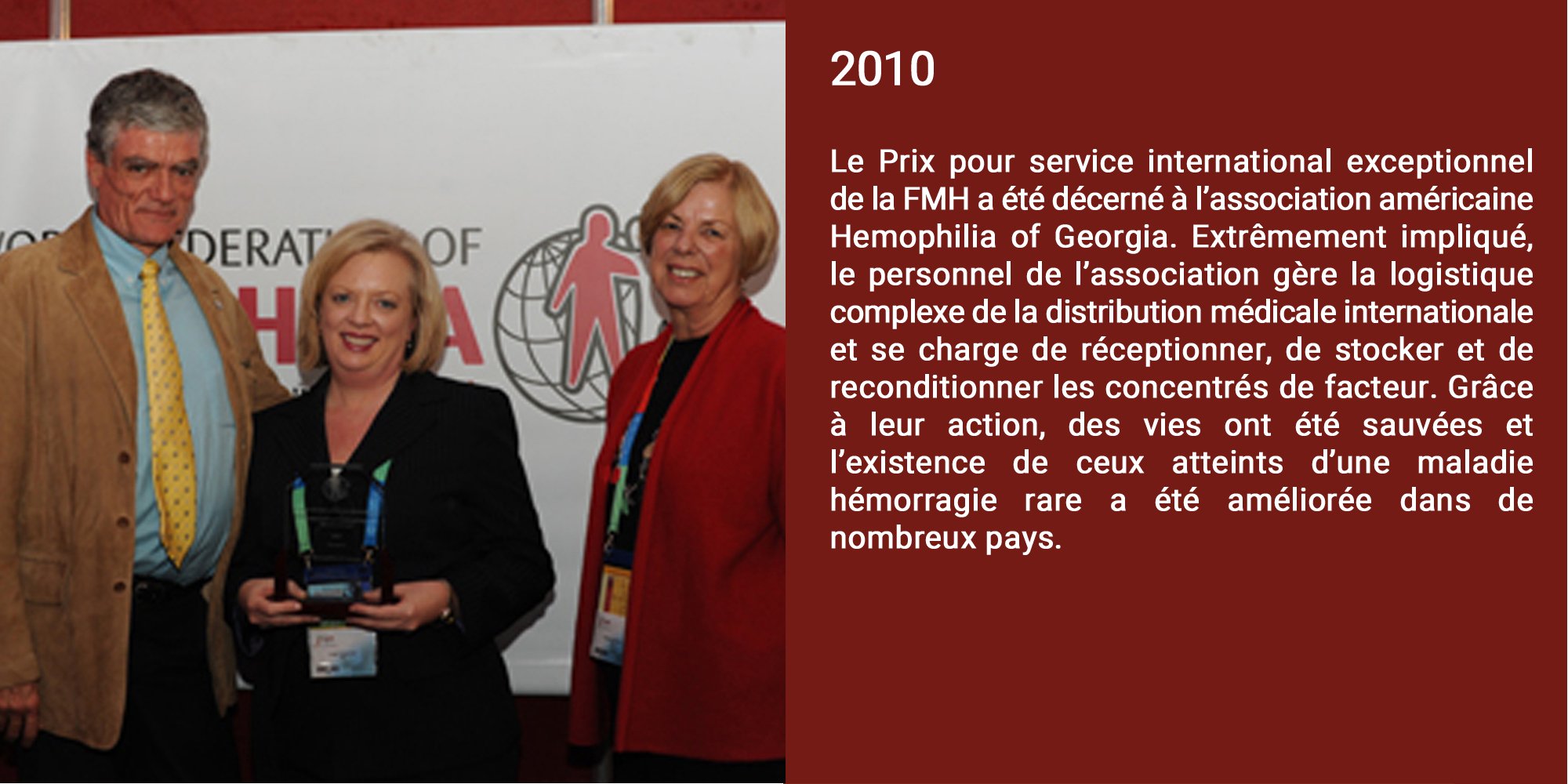Rédigées par le Comité médical consultatif (MAB)* et le Comité de sécurité, fourniture et disponibilité des produits sanguins (CPSSA)** de la Fédération mondiale de l’hémophilie :
*Membres du MAB : Greig Blamey, Ampaiwan Chuansumrit, Saliou Diop, Vincent Dumez, Magdy El Ekiaby, Cedric Hermans, Alfonso Iorio, Radoslaw Kaczmarek, Kate Khair, Steve Kitchen, Barbara Konkle, Ed Kuebler, Declan Noone, Flora Peyvandi, Steven Pipe, Jeff Stonebraker, Graeme Ting, Alain Weill, et Glenn F. Pierce, président
**Membres du CPSSA : Magdy El Ekiaby, Dan Hart, Marion Koerper, Mike Makris, Brian O’Mahony, David Page, Flora Peyvandi, Glenn Pierce, Thomas Sannié, Uwe Schlenkrich, Mark Skinner, Alok Srivastava, Craig Upshaw, et Radoslaw Kaczmarek, président
Pour les personnes atteintes d’hémophilie actuellement traitées par concentré de facteur recombinant FVIII ou FIX standard ou à demi-vie prolongée, par FEIBA, par FVIIa ou par emicizumab :
- Aucune raison de changer le régime de traitement recommandé.
- À ce stade, il n’y a pas lieu de craindre une rupture des traitements, des problèmes de fabrication ou une interruption de la chaine d’approvisionnement.
- Contactez les centres de traitement de l’hémophilie (CTH) si les stocks sont limités chez vous ou à l’hôpital.
- Si vous êtes traité·e chez vous, ne commandez pas plus de produits thérapeutiques qu’il n’est raisonnablement nécessaire. Il est cependant prudent d’avoir quelques doses supplémentaires chez vous, en cas de rallongement des délais ou de perturbation dans les livraisons.
Pour les personnes atteintes d’hémophilie traitées par FVIII/FIX dérivé du plasma
- Les procédures d’inactivation virale et d’élimination employées sont suffisantes pour détruire les virus à enveloppe lipidique tels que le SARS-CoV-21
- Il n’est pas recommandé de changer de produit thérapeutique.
- Aucune rupture d’approvisionnement de produits dérivés du plasma n’a été détectée à ce jour. La difficulté principale sera la baisse de la collecte de plasma au début de la chaîne de production des produits dérivés.2,3
- Les dons de sang et de plasma continuent d’être des processus sécurisés, et le besoin en dons de plasma est aussi élevé qu’en temps normal. Le soutien des donneuses et donneurs, actuels ou nouveaux, reste essentiel pour assurer un approvisionnement suffisant en sang et en plasma durant la pandémie.
- Tous les CTH et centres de don de sang et de plasma doivent suivre les recommandations visant à protéger le personnel de santé et les donneurs et donneuses, pour éviter la transmission du SARS-CoV-2 par contact interhumain, via gouttelettes respiratoires et vecteurs passifs.4
- Pour les personnes traitées par d’autres produits dérivés du sang non viro-inactivés (cryoprécipité, plaquettes), les décisions vis-à-vis du traitement devront être fondées sur une analyse bénéfice/risque clinique, en évaluant la possibilité de ne pas traiter un saignement ainsi que les risques résiduels de contracter une autre infection.
Pour les personnes atteintes d’hémophilie participant à des essais cliniques (hors essais post-commercialisation)5
- Contactez votre CTH pour discuter des conséquences de la pandémie.
- Assurez-vous de la disponibilité des médicaments testés et du maintien du traitement.
- Discutez des modalités de suivi et de surveillance avec une équipe de recherche de votre CTH. Le suivi à distance est recommandé, sauf si le produit candidat doit être administré et qu’une surveillance en face à face est nécessaire pour la prévention d’effets secondaires dangereux.
- Pour les patients qui ont récemment reçu un produit génétique (moins de 12 mois après injection), les tests de la fonction hépatique déjà programmés doivent rester une priorité pour des raisons de sécurité et d’efficacité.
- Si vous êtes actuellement traité·e dans le cadre d’un essai clinique, n’arrêtez pas le traitement et n’en changez pas à moins d’y être invité·e par l’équipe de recherche.
Pour les personnes atteintes d’hémophilie qui doivent prochainement participer à un essai pour un nouveau traitement5
- Le report de la participation doit être discuté avec l’équipe de recherche.
- De nombreux centres médicaux ont interdit le début de nouveaux essais cliniques pour ne pas occuper des ressources médicales qui sont actuellement nécessaires dans la prise en charge de la pandémie.
Mesures spécifiques pour réduire l’exposition des patient·es atteint·es d’hémophilie au SARS-CoV-2, le virus à l’origine du COVID-19
- Toutes les mesures pour réduire l’exposition aux personnes atteintes du COVID-19 doivent être absolument suivies par les personnes présentant des comorbidités (maladie cardiovasculaire, hypertension, obésité, diabète, VIH, âge avancé), prenant des médicaments stéroïdiens ou des traitements immunosuppresseurs.6,7
- Minimiser le plus possible l’exposition aux autres, y compris les personnes qui ne sont pas à risque et les enfants, est la précaution la plus importante à prendre pour éviter la transmission. Rester chez soi et respecter la distanciation sociale sont des mesures essentielles.
- Réduire la nécessité de voir les professionnel·les de santé, que ce soit dans les hôpitaux ou les cabinets. Les soins et actes chirurgicaux non urgents doivent être reportés.
- Le paracétamol (acétaminophène) réduit la fièvre sans inhiber la réponse inflammatoire nécessaire à l’organisme pour lutter contre le coronavirus ; il est recommandé pour les personnes présentant un trouble de la coagulation.
- La quantité de paracétamol (acétaminophène) absorbée ne doit pas excéder 60 mg par kg et par jour, soit 3 g par jour. Des doses plus élevées peuvent endommager le foie.
- L’ibuprofène et les anti-inflammatoires non stéroïdiens (AINS) ne sont généralement pas recommandés pour les personnes présentant des troubles de la coagulation, car ils peuvent augmenter les saignements via l’inhibition de la fonction plaquettaire. De plus, on suspecte l’ibuprofène en particulier d’aggraver le COVID-19 ou d’augmenter le risque d’infection par le SARS-CoV-2, à cause de la régulation positive du récepteur d’entrée, l’angiotensine, qui convertit l’enzyme 2. Cependant, les données qui confirment cette hypothèse sont encore limitées.8-10
- N’oubliez pas que les mesures d’hygiène spécifiques, comme se laver les mains, éviter de se toucher le visage, se protéger la bouche en cas de toux et rester à au moins 2 mètres des autres sont essentielles dans la prévention de la transmission du coronavirus.
Mesures spécifiques en cas d’hospitalisation d’un·e patient·e présentant un trouble de la coagulation et une infection par le COVID-19
- Bien communiquer entre l’hôpital où est admis le patient et le CTH
- Mettre en place une thérapie par remplacement/un accès veineux sécurisé.
- Informer l’équipe traitante en cas de traitement par emicizumab (risque de mauvaise prise en charge et de mauvaise interprétation des tests d’hémostase par un personnel de santé non familier de la molécule).11
- Informer l’équipe traitante de votre participation, si c’est le cas, à un traitement expérimental par agents de rééquilibrage (anti-TFPI et fitusiran), si vous présentez un risque de thrombose ou d’autres déséquilibres du système de coagulation, ou si vous avez récemment reçu un traitement par thérapie génique. Si c’est le cas, communiquez également avec votre CTH.
- Si vous présentez une infection par le COVID-19, certains cliniciens et cliniciennes recommandent un traitement prophylactique et le maintien d’un niveau plus élevé de facteurs de coagulation, pour éviter des saignements pulmonaires en cas de complications graves entraînées par le SARS-CoV-2, ou de toux sévère et mouchage fréquent, qui peuvent augmenter la pression sanguine dans le cerveau et créer des saignements. Plusieurs études de cas permettent d’envisager cette hypothèse.
Les actualités évoluent tous les jours et nous mettrons à jour les informations de la FMH chaque fois que cela sera nécessaire.
Références
- Busch M, LM Katz, H Shan.Webinar: Update on the COVID-19 Coronavirus Outbreak: Blood Collection and Safety Implications. ISBT Education. 04/03/20. https://education.isbtweb.org/isbt/2020/covid-19/289245/michael.busch.louis.m.katz.26.hua.shan.webinar.update.on.the.covid-19.html?f=menu%3D8%2Abrowseby%3D8%2Asortby%3D2%2Alabel%3D19776. Consulté le 19 mars 2020.
- Ressources sur l’infection à nouveau coronavirus (COVID-19). https://www.pptaglobal.org/23-advocacy/access-to-care/1057-covid-19. Consulté le 19 mars 2020.
- Le nouveau coronavirus (SARS-CoV-2) et les marges de sécurité des thérapies par protéines plasmatiques. https://www.pptaglobal.org/media-and-information/ppta-statements/1055-2019-novel-coronavirus-2019-ncov-and-plasma-protein-therapies. Consulté le 19 mars 2020.
- van Doremalen N, Bushmaker T, Morris DH, et al. Aerosol and Surface Stability of SARS-CoV-2 as Compared with SARS-CoV-1. N Engl J Med. 2020 Mar 17. DOI: 1056/NEJMc2004973.
- Recommandations de la FDA sur la conduite des essais cliniques de produits médicaux durant la pandémie de COVID-19. https://www.fda.gov/regulatory-information/search-fda-guidance-documents/fda-guidance-conduct-clinical-trials-medical-products-during-covid-19-pandemic. Consulté le 19 mars 2020.
- Zhou F, T Yu, R Du. Clinical course and risk factors for mortality of adult inpatients with COVID-19 in Wuhan, China: a retrospective cohort study. The Lancet. Publication en ligne le 9 mars 2020. DOI: https://doi.org/10.1016/S0140-6736(20)30566-3.
- Fang L, G Karakiulakis, M Roth. Are patients with hypertension and diabetes mellitus at increased risk for COVID-19 infection? Lancet Respir Med 2020. Publication en ligne le 11 mars 2020. DOI:https://doi.org/10.1016/S2213-2600(20)30116-8
- Recommandations de l’EMA sur l’usage d’anti-inflammatoires non stéroïdiens dans le COVID-19. https://www.ema.europa.eu/en/news/ema-gives-advice-use-non-steroidal-anti-inflammatories-covid-19. Consulté le 19 mars 2020..
- Voiriot G, Q Philippot, A Elabbadi , C Elbim4, Martin Chalumeau, M Fartoukh. Risks Related to the Use of Non-Steroidal Anti-Inflammatory Drugs in Community-Acquired Pneumonia in Adult and Pediatric Patients. J. Clin. Med. 2019, 8, 786; doi:10.3390/jcm8060786
- Legras A, B Giraudeau, A-P Jonville-Bera, et al. A multicentre case-control study of nonsteroidal anti-inflammatory drugs as a risk factor for severe sepsis and septic shock. Critical Care 2009, 13:R43 (doi:10.1186/cc7766).
- Adamkewicz JI, DC Chen, I Paz-Priel. Effects and Interferences of Emicizumab, a Humanised Bispecific Antibody Mimicking Activated Factor VIII Cofactor Function, on Coagulation Assays. Thromb Haemost 2019; 119(07): 1084-1093. DOI: 10.1055/s-0039-1688687
Sites à consulter
- https://www.cdc.gov Centers for Disease Control and Prevention (États-Unis)
- https://www.who.int/fr/emergencies/diseases/novel-coronavirus-2019 et https://www.who.int/fr/health-topics/coronavirus/coronavirus Organisation mondiale de la santé
- https://www.ecdc.europa.eu/en/novel-coronavirus-china EU Center for Disease Prevention and Control
- https://www.nih.gov/health-information/coronavirus National Institutes of Health
- https://www.worldometers.info/coronavirus/ Données mondiales
- https://www.nejm.org/coronavirus Résumés du New England Journal of Medicine
- https://www.pptaglobal.org/23-advocacy/access-to-care/1057-covid-19 Plasma protein therapeutics association
- https://www.isbtweb.org/ International Society of Blood Transfusion
KEYWORD: MEDICALC19

